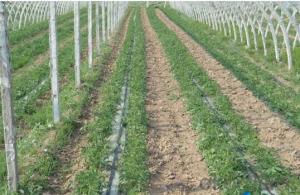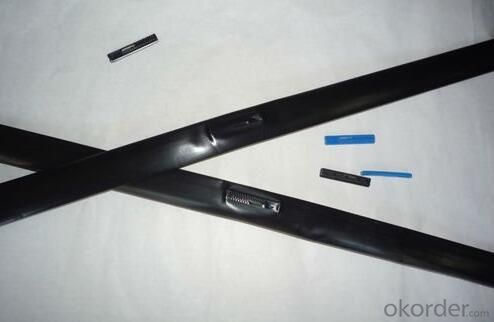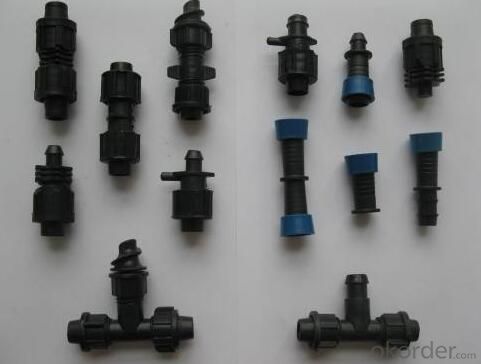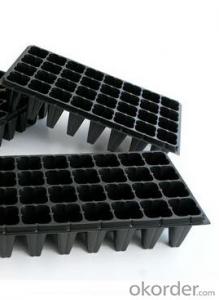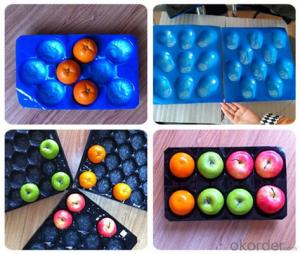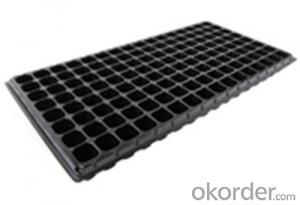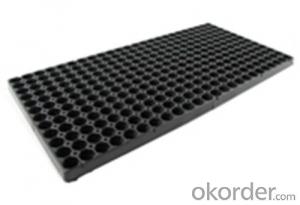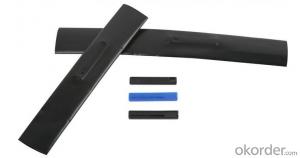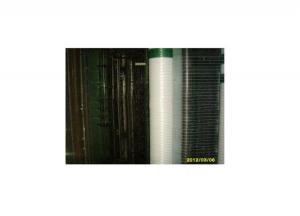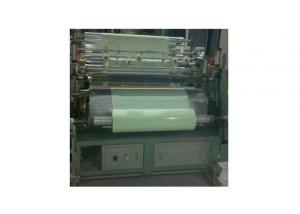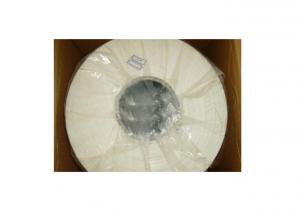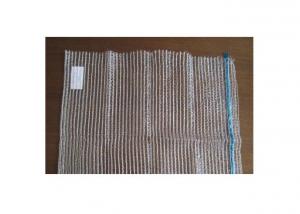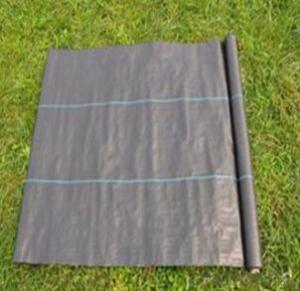Irrigation Drip Line with Double Blue Lines for grapes
- Loading Port:
- Tianjin
- Payment Terms:
- TT OR LC
- Min Order Qty:
- 199 m²
- Supply Capability:
- 1999999 m²/month
OKorder Service Pledge
OKorder Financial Service
You Might Also Like
The Application of Irrigation Drip Line with Double Blue Lines for grapes:
The layflat hose has a wealth of residential and commercial applications, and it is usually used for general water transfer purposes as well as for submain.Generally layflat hoses are used in the industry of agriculture,in pipe lining and rehabilitation,in removing waste water,in mine dewatering ,in the chemical industry and even for household chores
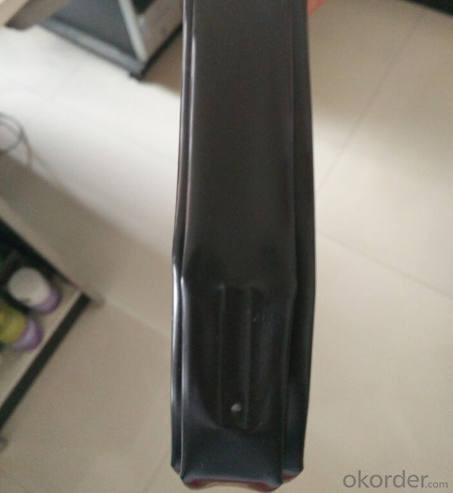
Irrigation Drip Line with Double Blue Lines for grapes:
The decription of of new Plastic Agriculture Irrigation Pipe for Greenhouse:
Two layers of PVC bonded together encapsulating high tensile polyester fibers.
Thick wall dimensions and strong yarn structure help products to hold connections and resist bursting.
It assumes the conventional round appearance when pressure is being passed through it and then returns to its flat shape after use.It does not need drying and can be rolled immediately after use.
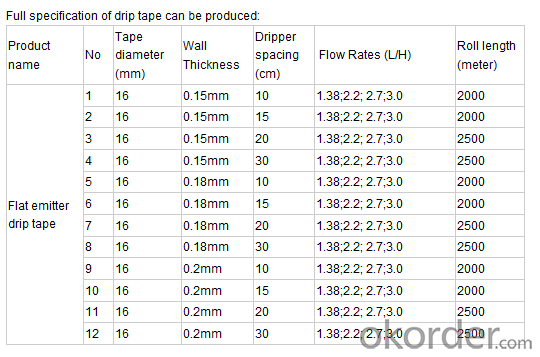
Irrigation Drip Line with Double Blue Lines for grapes:
Features of of new Plastic Agriculture Irrigation Pipe for Greenhouse:
1.Great durability mainly given by the reinforcement and high-density PVC material.
2.The layflat hoses can have up to 12 inches diameter based on their applications.
3.Extra thickness are added in order to prevent bursting due to pressure in heavy industry.
4.Can be easily rolled up,stored and reused,as it has a very durable construction.
5.The hoses come with a variety of fittings and accessories ensures the water transfer process free of leaking.
6.Temperature range:-5°C~65°C(23~149F)
FAQ
Irrigation Drip Line with Double Blue Lines for grapes:
1.Q:Are you manufactory or trade company?
A:We are the Manufactory specialized in drip irrigation more than 20 years; Our factory have passed IS09000.
2.Q:How can I get the samples?
A:If you need some samples to test, we can make as per your request .You should pay for the transportation freight of samples and our samples cost, while the samples cost can be refundable after you place the order if the amount meets our requirement.
3.Q:How much the transportation freight of samples?
A:The freight depends on the weight and packing size and your area.
4.Q:How long can I expect to get the sample?
A:The samples will be ready for delivery within one week. The samples will be sent via express and arrive in 7-10 days.
5.Q:Can we have our Logo or company name to be printed on your products or package?
A:Sure.Your Logo can be put on your products by Hot Stamping,Printing,Embossing,UV Coating,Silk-screen Printing or Sticker
- Q: Can agricultural plastic products be used for silage production?
- Yes, agricultural plastic products can be used for silage production. Silage plastic wraps and bags are commonly used to cover and seal silage, protecting it from air and moisture, which helps preserve the nutritional value of the forage. These plastic products provide an effective barrier and aid in creating the anaerobic conditions necessary for successful ensiling.
- Q: What are some ground cover options for hot, sunny areas?
- Some ground cover options for hot, sunny areas include creeping thyme, sedum, lantana, gazania, and ice plant.
- Q: How do you choose ground cover for a xeriscape garden?
- When choosing ground cover for a xeriscape garden, it is important to consider plants that are drought-tolerant, low-maintenance, and can withstand the climate conditions of the area. Opt for native or adapted species that have efficient water usage and require minimal irrigation. Additionally, select ground covers that can spread and provide good coverage, suppressing weed growth and reducing soil erosion. It is also beneficial to consider plants with interesting textures, colors, and foliage to add visual appeal to your xeriscape garden.
- Q: Are there ground cover options that provide flowers or color?
- Yes, there are several ground cover options that provide flowers or color. Some examples include creeping phlox, candytuft, creeping thyme, and creeping buttercup. These plants not only provide beautiful blooms but also add visual interest and vibrancy to the garden or landscape.
- Q: How do plastic greenhouse shading nets assist in temperature regulation?
- Plastic greenhouse shading nets assist in temperature regulation by providing shade and reducing the amount of direct sunlight that enters the greenhouse. This helps to prevent overheating and excessive temperature fluctuations inside the greenhouse, creating a more favorable environment for plant growth.
- Q: How are plastic crates used in agriculture?
- Plastic crates are commonly used in agriculture for various purposes such as harvesting, storing, and transporting fruits, vegetables, and other agricultural produce. They provide a lightweight, durable, and hygienic solution for farmers to efficiently handle and transport their crops. Plastic crates also allow for better ventilation, reducing the risk of spoilage and preserving the quality of the produce. Additionally, these crates are stackable, maximizing storage space and facilitating organized inventory management in agricultural settings.
- Q: Can ground cover plants be used to cover large areas quickly?
- Yes, ground cover plants can be used to cover large areas quickly. Ground cover plants are low-growing and spread rapidly, providing effective coverage for large areas of land. They have a dense growth habit that helps to suppress weeds and prevent soil erosion. Additionally, many ground cover plants are hardy and adaptable, making them ideal for establishing extensive coverage in a relatively short time.
- Q: What are the different types of mulch films used in agriculture?
- The different types of mulch films used in agriculture include biodegradable mulch films, black plastic mulch films, and reflective mulch films.
- Q: Can ground cover plants be used to replace traditional lawns?
- Yes, ground cover plants can be used as an alternative to traditional lawns. Ground cover plants require less water, fertilizer, and maintenance compared to grass lawns. They also help prevent soil erosion and provide habitat for beneficial insects. Additionally, ground cover plants come in a variety of colors and textures, adding aesthetic appeal to outdoor spaces.
- Q: Are there any alternatives to using agricultural plastic products?
- Yes, there are several alternatives to using agricultural plastic products. Some of these alternatives include using biodegradable materials such as bio-based mulches, compostable plant pots, and natural fiber-based packaging. Additionally, farmers can explore sustainable practices such as organic farming methods, crop rotation, and integrated pest management to reduce the need for plastic products in agriculture.
Send your message to us
Irrigation Drip Line with Double Blue Lines for grapes
- Loading Port:
- Tianjin
- Payment Terms:
- TT OR LC
- Min Order Qty:
- 199 m²
- Supply Capability:
- 1999999 m²/month
OKorder Service Pledge
OKorder Financial Service
Similar products
Hot products
Hot Searches
Related keywords
